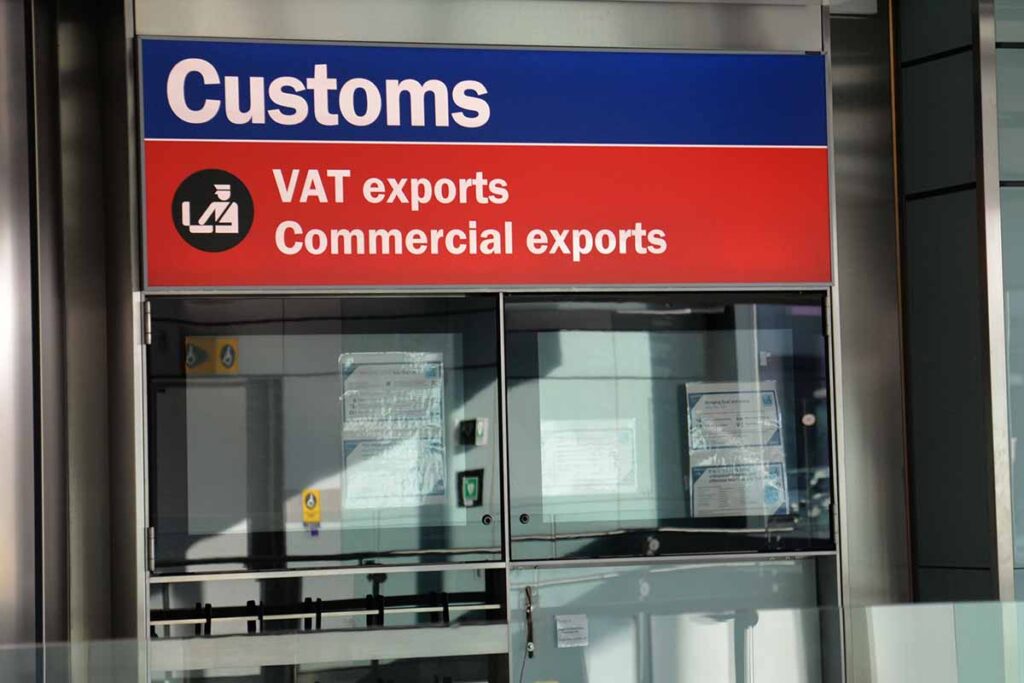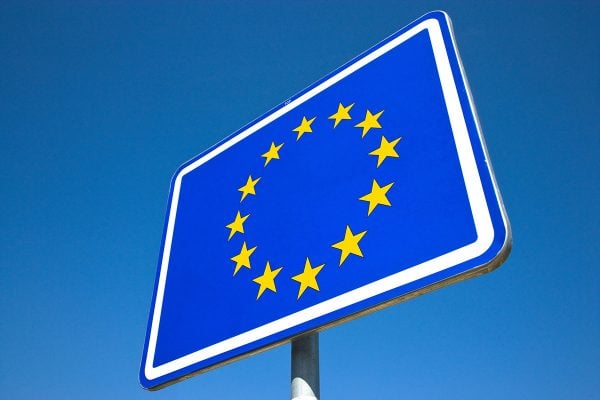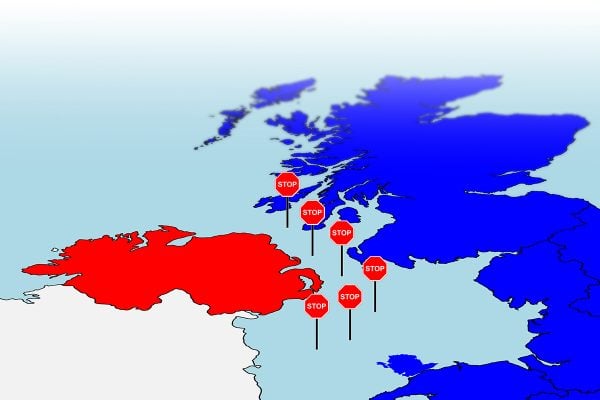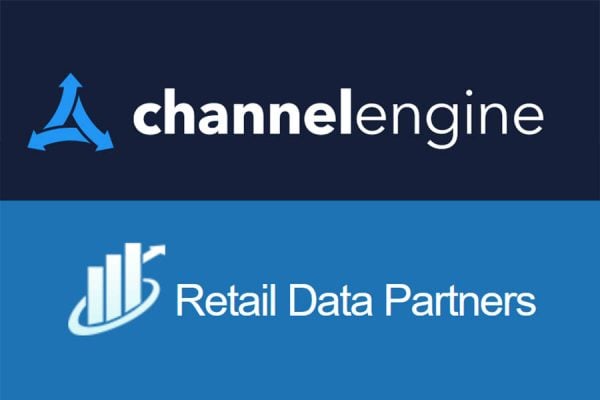 A week into the new EU VAT rules and import duty changes, which include the introduction of IOSS and Marketplaces VAT, Bobbie Ttooulis, Group Marketing Director at GFS, takes a look at how the changes are bedding in and unfortunately the conclusion is the changes have created further chaos for UK businesses selling to the EU:
A week into the new EU VAT rules and import duty changes, which include the introduction of IOSS and Marketplaces VAT, Bobbie Ttooulis, Group Marketing Director at GFS, takes a look at how the changes are bedding in and unfortunately the conclusion is the changes have created further chaos for UK businesses selling to the EU:
New Rules Create Further Chaos for UK Businesses Selling to the EU
2021 hasn’t been an easy year for UK businesses, with the changes imposed by Brexit causing confusion, difficultly and delays, all while managing the impact of the Covid19 crisis. But just as businesses start to get their head above water, the EU has implemented new rules around VAT for selling into the EU as of the 1st July. Contrary to common belief, this change has nothing to do with Brexit, but instead was always planned as part of a worldwide initiative to modernise VAT, reduce fraud and level the playing field between small and larger businesses. However, that’s no consolation to UK businesses as they now face another layer of complexity to shipping to the EU, just as they get to grips with changes from Brexit.
What Changes Were Implemented on 1st July?
As of 1st July, the €22 VAT threshold (De Minimis) exemption on goods imported to the EU no longer applies. This means that ALL EU commercial imports are subject to VAT regardless of value. VAT has to be charged based on their customers location, has to be declared for customs clearance, and VAT returns must be submitted. To make the whole process easier and cheaper for online sellers, especially those of low value B2C goods, the EU have introduced the Import One Stop Shop (IOSS) electronic portal. Here, sellers can register to get a single VAT IOSS ID number that applies to distance sales in all EU countries. It enables businesses to collect, declare and account for VAT and pay bills directly to the EU Tax Authorities via a periodic tax return. All of this is designed to make it easier and give customers complete VAT cost transparency at the moment of purchase.
While this all sounds great for UK businesses continuing to sell into the EU, the reality is that the system supposed to make things easier is, in fact, making things more complicated.
What Difficulty Is IOSS Causing UK Businesses?
For an ecommerce business who wants to start using the IOSS system, the process has been fraught with difficulty. The first step in using IOSS is that businesses need to register to have an IOSS number. However, even in this first step, businesses are facing a backlog of 6 weeks as everyone rushes to register. The EU countries required to set up the right IOSS portals are also behind, with many countries not hitting the deadline making it impossible for businesses to register in their chosen country.
If they are able to successfully get their IOSS number and register in their chosen country, businesses then face possible disruption with the carriers. Carriers must have the right technology and service in place so businesses can give them their IOSS number and carriers can use this to go straight through customs. However not all carriers have been able to implement this, meaning some businesses may find their carrier unable to take their parcels. For businesses who don’t want to use IOSS or haven’t been able to register yet due to the backlog, some carriers have even dropped non-IOSS services all together or are charging higher prices for those services. For businesses who rely on just one or two carriers, they could find themselves quickly having to evaluate their carrier mix to find someone to meet their needs without costs going through the roof.
The job doesn’t end there of course, the changes have to be affected at a system level too as businesses need to ensure that their ecommerce and despatch platforms are able to capture and transmit the IOSS number – in addition to all the other post-Brexit requirements such as EORI number, harmonisation codes, product descriptions!
Fallout from IOSS Leading to Poor Customer Experience
The impact for UK businesses is clear: they face confusion, complication and rising prices. However, even worse is the impact it will have on their customers. For businesses using DTP or IOSS, customs will know that duties have been paid so parcels can go through customs easy. However, for businesses not able to use IOSS yet or using Duty at Place, the parcels can get stuck at customs. This leads to a delay as local delivery services contact the customer to get them to pay the additional customs costs. For some customers, especially if there is a lack of transparency from the seller, this can be a shock and cause a bad customer experience, potentially damaging the brands reputation. Worst still, increasingly customers are rejecting the parcel altogether rather than paying, meaning businesses are facing a flood of returned parcels to deal with, especially in the fashion industry where returns are already high.
All in all, businesses are facing another layer in the complexity of cross border delivery. Already fatigued and frustrated from dealing with changes from Brexit, this system that was supposed to make it easy has created more problems than it intended to solve.
The Way Forward for UK Businesses Wanting to Sell into the EU
As the IOSS process smooths out its kinks over the next few months, the disruption has highlighted the need for UK businesses to have more flexibility when it comes to delivery. For this and any future changes that come along, they need to be able to access the right expertise and have the right carrier mix to pick and choose the best service for them.
In addition, businesses also need to be able to adapt and adopt new technology as delivery becomes more automated. This include everything from being able to calculate VAT and give your customers transparency at checkout, to having the right system to input the various codes needed for a smooth cross border process. Beyond inbound delivery, they also need to ensure they can make returns easy for the customer and are able to capture the information for duty relief when it goes back through customs to avoid additional charges.
By working with a multi carrier partner like GFS businesses can get access to the latest technology designed to make delivery easier and streamlined for businesses, get easy flexible access to multiple different carriers, and rely on the experts to help them handle changes to delivery and customs processes.
Long term, IOSS will make importing into the EU easier for UK businesses, however there is still complexity and pain associated with importing into the EU. If the last couple of years has taught us anything, it’s that businesses can’t predict the changes that are down the road and how they might turn their entire logistics and delivery process on its head. That’s why the only real way businesses can be prepared is to tap into the flexibility and agility of working with a multi carrier partner and ensure that whatever happens, they have the backup and support to weather the storm.
If you are shipping 50+ PPN and need advice on multi-carrier shipping options please contact GFS.










9 Responses
What are PPN?
Parcels Per Night?
Parcels Per Nine Minutes?
So basically the ‘article’ is just a big advert for GFS?
Interesting article with some useful info for us. The biggest obstacle for us as a small business you missed completely. To get an IOSS number you have to appoint an intermediary in the country you choose to work with for VAT, you don’t appear to be able to go directly. We approached Ireland & Denmark and they both gave us the same story. Companies like Royal Mail will do it for you from here through Deloitte but want to charge about £2000 to set it up then £2 per parcel sent. They indicated months ago they were setting up their own portal but nothing has happened thus far.
If an article is sponsored or an ad, you should declare that.
IOSS is not working.
So this nutty system has nothing to do with Brexit. It’s a good thing we left
@trumpton
As usual completely wrong like most Brexit wrexiteers!
This has everything to do with the EU trading block making its own rules on Third Party countries like the UK.
If you want a near seamless experience selling B2B or B2C across the EU join the EU Single Market!
Try and keep up.
@Trumpton
DOH !!!!
If we hadn’t left we wouldn’t be subject to it !
This system is purely designed to collect tax for items going into the EU from NON EU countries.
If the UK was still in the EU, sending a parcel to Belgium would be the same as sending one to Birmingham, but we left so we get the same import treatment as Africa / USA etc.
Still, blue passports
Still no idea what PPN stands for…
of course this is to do with Brexit. This is what is feels like to be a non- Eu nation.